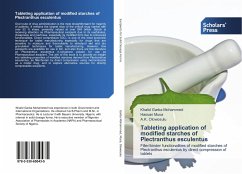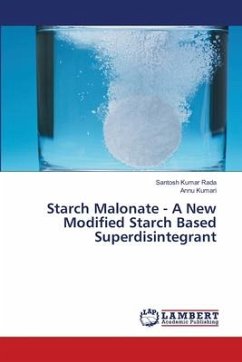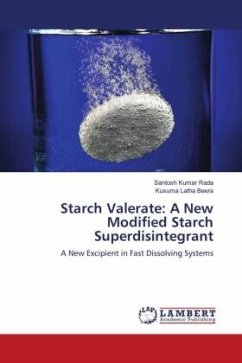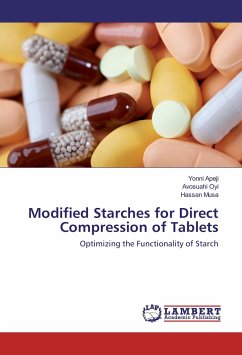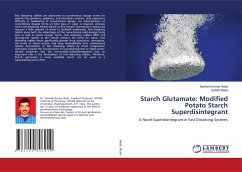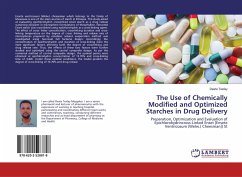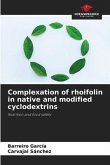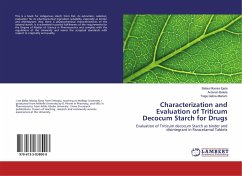Oral route of drug administration is the most straightforward for majority of patients. It remains the largest slice of the overall drug market with over 52 % share, presently valued at over $49 billion. Starch is receiving attention as Pharmaceutical excipient due to its usefulness, cheapness and inertness, especially its modified form due to enhanced functionalities. Direct compression (DC), is one of the most economic technique for tablet manufacturing especially for drugs that are sensitive to moisture and thermolabile to withstand wet and dry granulation techniques for tablet manufacturing. However, few excipients are available for use in DC, and also there are few literature on Plectranthus esculentus (Livingstone potato) for use as Pharmaceutical excipient. The aim of this book is to provide an insight into tableting properties of modified starches derived from Plectranthus esculentus, as filler/binder by direct compression using metronidazole as a model drug, and to explore alternative sources for directly compressible excipients.

